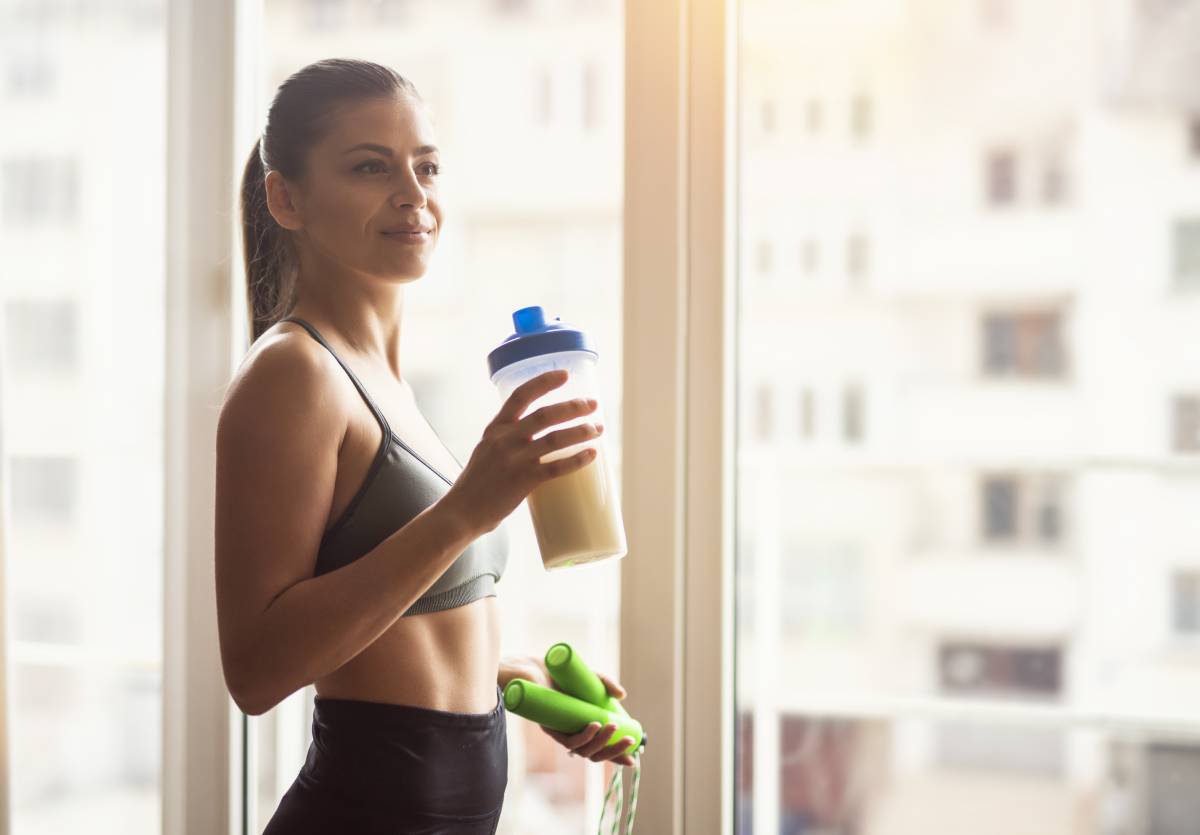Nutrition Guidelines for Athletes

“Nutrition plays a critical role in athletic performance” [5], both physically and mentally [1]. For nearly a century, scientists have observed that exercise could be improved by one’s diet [5]. Thus, athletes are often suggested to follow certain nutrition guidelines to help optimize performance. Since the needs, goals, and training schedules of athletes depend largely on the individual, nutrition guidelines vary [2,4,7], and “there are no [nutritional] methods that will address all needs” [4]. However, consensus concerning general aspects of an athlete’s nutrition do exist.
Most nutrition guidelines for athletes specify ratios for the intake of carbohydrates, protein, fat, hydration, and supplements/vitamins [5,7]. According to a study examining sport nutrition for young athletes, “an ideal diet comprises 45% to 65% carbohydrates, 10% to 30% protein, and 25% to 35% fat” [6]. Studies propose that “meals be eaten a minimum of 3 hours before exercise,” snacks “1 to 2 hours before activity,” and recovery foods “within 30 minutes of exercise and again within 1 to 2 hours of activity to allow muscles to rebuild and ensure proper recovery” [6].
Carbohydrates “are the most efficiently broken-down and metabolized form of energy for the body” [5], making them essential to an athlete’s diet. The United States Anti-Doping Agency (U.S.A.D.A) recommends that “athletes should consume anywhere from 3 to 12 grams of carbohydrates per kilogram of bodyweight throughout the day,” based on the individual’s training regiment, as “carbohydrate intake before and after exercise can help to restore sub-optimal glycogen stores, which is critical for prolonged periods of exercise” [5].
In addition to carbohydrates, proteins are key components of an athlete’s nutrition [5,7], as they promote recovery and tissue repair by restoring muscle glycogen and stimulating protein synthesis [5]. Athletes are encouraged to consume 1.2 to 2 grams of protein per kilogram of bodyweight daily, with emphasis on post-exercise meals, depending on the individual’s training schedule and needs [5]. Viable food sources for protein include meat, dairy products, nuts, and seeds [5]. Research also suggests that consuming healthy fats, such as mono-unsaturated and n-3 polyunsaturated fats, versus saturated and trans fats, benefits an athlete’s nutrition, as they help reduce inflammation and maintain proper vascular function, “which indirectly may support athletic performance” [5].
Another important aspect of an athlete’s nutrition is hydration, as water accounts for approximately 60% of an individual’s bodyweight [5]. If not adequately hydrated, an athlete may experience adverse side-effects during exercise, including decreased oxygen to the muscles, decreased cardiac output, exhaustion, and the build-up of performance-diminishing toxins [5]. To effectively prevent dehydration, the National Collegiate Athletic Association recommends that athletes drink water throughout the day, including before (16 to 24 ounces), during (4 ounces every 15 to 20 minutes), and after exertion (16 to 20 ounces for every pound lost from exercise) [3]. To aid hydration, athletes may consume sports drinks, as they contain certain substances that water lacks, such as carbohydrates, electrolytes, and sodium, which help provide energy, replenish nutrients and minerals, and sustain performance [3,5].
Dietary supplements are “products containing dietary ingredients (including vitamins, minerals, amino acids, enzymes, organ tissues, metabolites, etc.) intended to supplement the diet” [5]. While some athletes incorporate supplements into their diet, most nutrition guidelines advise against them, as the necessary number of vitamins and nutrients can be achieved naturally through a well-balanced diet [3,5], and certain sports may prohibit their use in the competitive or professional setting [3].
As reiterated by the U.S.A.D.A., by “making informed food choices, athletes will have an advantage over those who choose to ignore the role that food plays in human performance” [5]. Before following any nutrition guidelines for athletes, researchers advise that individuals consult with their coaches or guardians, as well as their physician or a licensed nutritionist. Physical therapists can also provide nutritional guidance.
References
1. Economos, C. D., Bortz, S. S., et al. Nutritional Practices of Elite Athletes: Practical Recommendations. Sports Medicine: Evaluations of Research in Exercise Science and Sports Medicine, 16(6), 381–399. DOI: 10.2165/00007256-199316060-00004
2. Houtkooper, L., Abbot, J., et al. (2007). Nutrition for Throwers, Jumpers, and Combined Events Athletes. Journal of Sports Sciences, 25, 39-S47. DOI: 10.1080/02640410701607262
3. How to Maximize Performance Hydration. (n.d.). N.C.A.A. Sport Science Institute. https://www.ncaa.org/sites/default/files/Performance%20Hydration%20Fact%20Sheet.pdf
4. Jeukendrup, A. (2017). Periodized Nutrition for Athletes. Sports Medicine, 47, 51–63. DOI: 10.1007/s40279-017-0694-2
5. Karpinski, Christine. (2017). Sports, Cardiovascular, and Wellness Nutrition Dietetic Practice Group. Sports Nutrition: A Handbook for Professionals. 6th ed., Chicago: Academy of Nutrition and Dietetics. https://www.usada.org/wp-content/uploads/Nutrition-Guide.pdf
6. Purcell, L. K. Sport Nutrition for Young Athletes. Pediatrics and Child Health (Canada), 18(4), 200–202. DOI: 10.1093/pch/18.4.200
7. Shriver, L., Betts, N., & Wollenberg, G. (2013). Dietary Intakes and Eating Habits of College Athletes: Are Female College Athletes Following the Current Sports Nutrition Standards? Journal of American College Health, 61(1), 10–16. DOI: 10.1080/07448481.2012.747526
